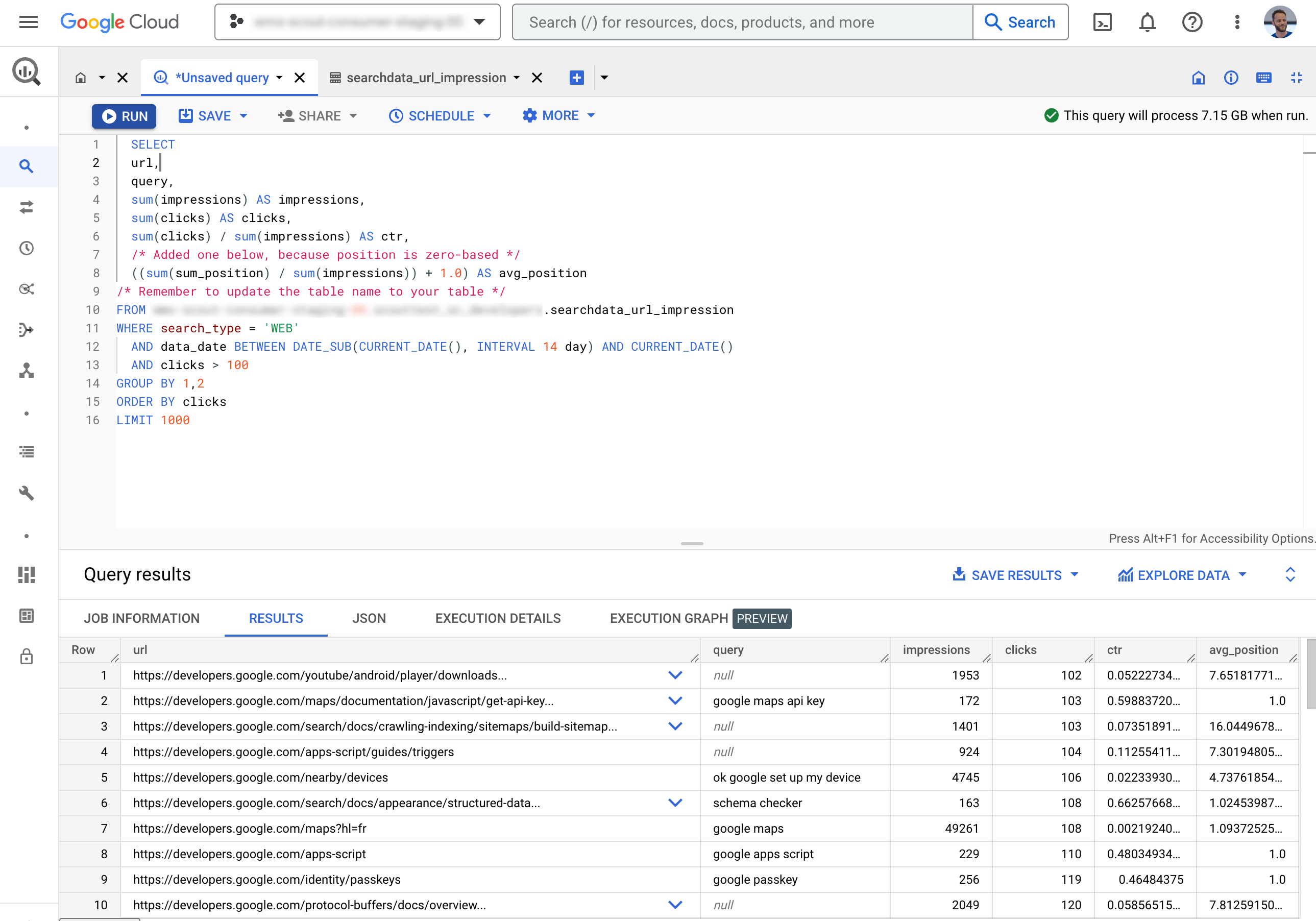SEO
Google Search Console Bulk Data Export Is Here

Google is about to make the life of marketers and SEO professionals much easier with their latest announcement of a new feature called bulk data export.
With this new tool, you can continuously export data from Google Search Console to Google BigQuery, allowing you to explore data more thoroughly.
The feature is already available to small and medium sites with access to all their data through the user interface, the Looker Studio connector (formerly Data Studio), or the Search Analytics API.
However, this new feature will be a game-changer for large websites with tens of thousands of pages or those receiving traffic from tens of thousands of queries a day.
What Is Google’s Bulk Data Export?
Bulk data export is a tool that allows you to export daily data dumps of all your performance data except for anonymized queries.
The data can then be analyzed using advanced analysis and visualization techniques, making exploring easier.
How To Set Up Bulk Data Export?
To configure a new report, prepare your BigQuery account to receive the data and set up your details in the Search Console settings.
Once the export simulation succeeds, all property owners will receive an email notification, and their ongoing exports will start within 48 hours.
What Data Is Available On Bulk Data Exports?
The data is aggregated by property, URL, and a record of what data was saved for that day. There are three tables available:
- Searchdata_site_impression: Contains data aggregated by property, including query, country, type, and device.
- Searchdata_url_impression: Contains data aggregated by URL, which enables a more detailed view of queries and rich results.
- ExportLog: A record of what data was saved for that day. Failed exports are not recorded here.
 Screenshot from: developers.google.com/search/blog/2023/02/bulk-data-export, February 2023.
Screenshot from: developers.google.com/search/blog/2023/02/bulk-data-export, February 2023.Why Is Bulk Data Export Important?
This tool makes it easier to join page-level information from internal systems to search results more effectively and comprehensively.
As a result, website owners and SEO professionals can find more content opportunities by analyzing long-tail queries.
Google is expected to roll out this feature over the next week, giving you a chance to start planning how it.
Featured Image: eamesBot/Shutterstock
Source: Google

![How AEO Will Impact Your Business's Google Visibility in 2026 Why Your Small Business’s Google Visibility in 2026 Depends on AEO [Webinar]](https://articles.entireweb.com/wp-content/uploads/2026/01/How-AEO-Will-Impact-Your-Businesss-Google-Visibility-in-2026-400x240.png)
![How AEO Will Impact Your Business's Google Visibility in 2026 Why Your Small Business’s Google Visibility in 2026 Depends on AEO [Webinar]](https://articles.entireweb.com/wp-content/uploads/2026/01/How-AEO-Will-Impact-Your-Businesss-Google-Visibility-in-2026-80x80.png)















You must be logged in to post a comment Login